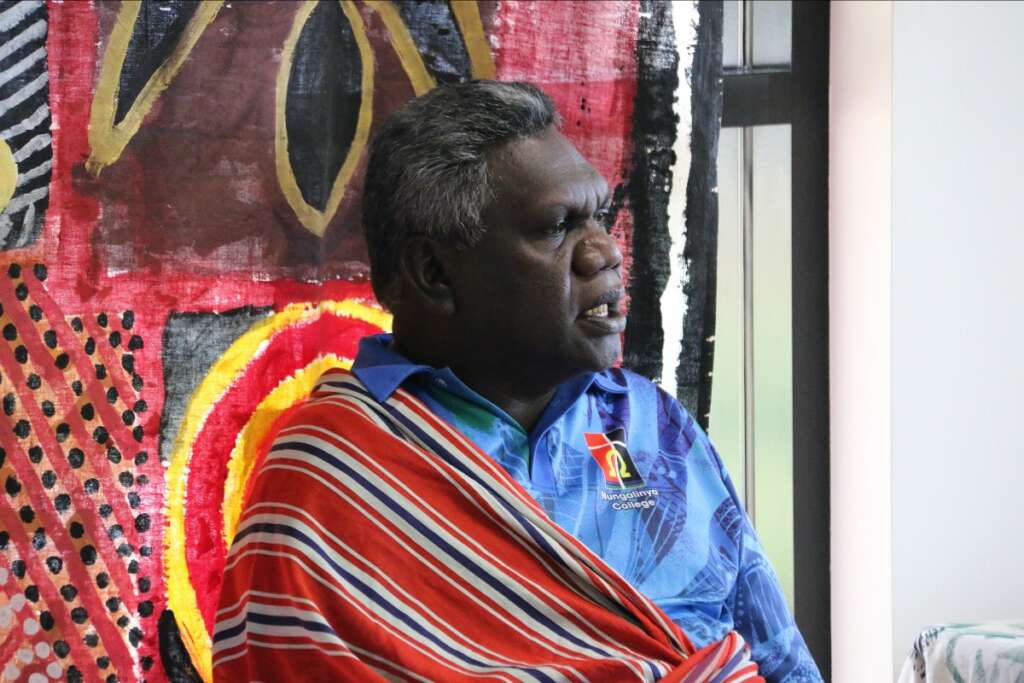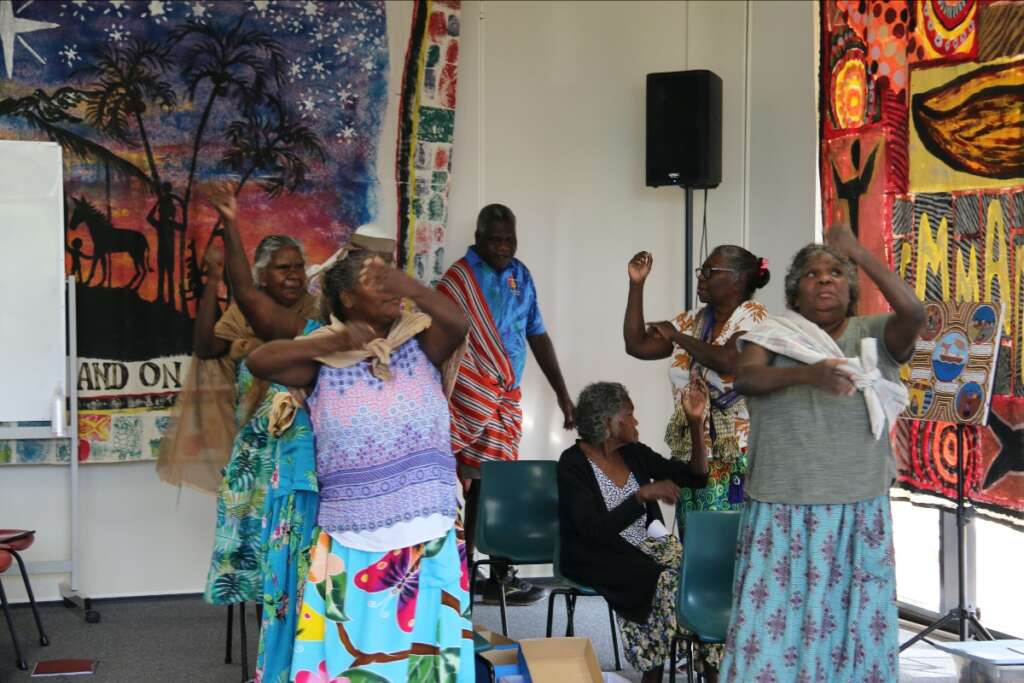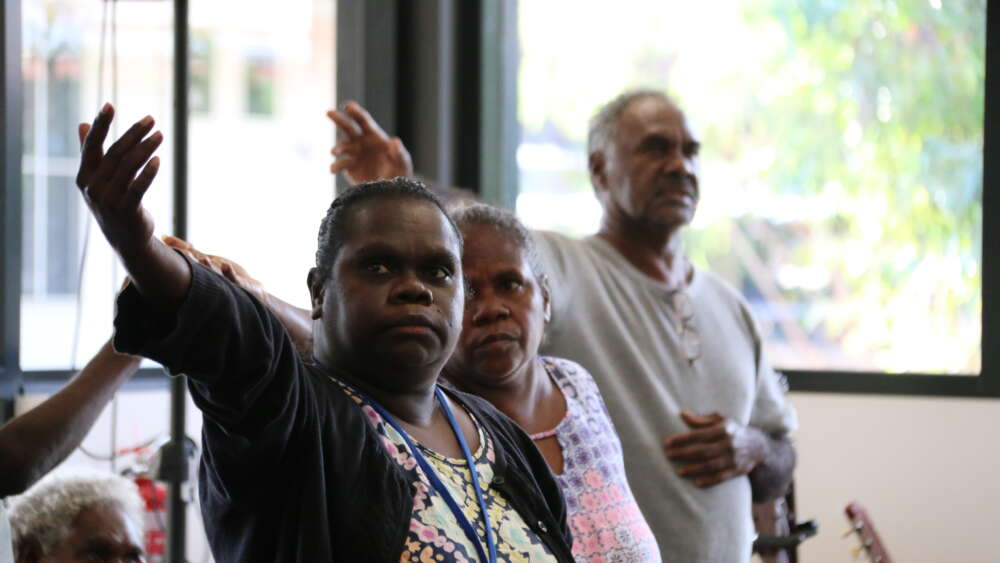Half way there on the road to more Indigenous Bible translation
Good news from the Top End
A cohort of Indigenous students are halfway through a new course teaching them to be better Bible translators.
The Diploma of Translating course is being taught at Nungalinya College in Darwin, and has attracted 17 students from across the Top End, from the Tiwi Islands to East Arnhem Land and Katherine. The students represent 8 different Aboriginal and Torres Strait Islander languages. These students will be the first cohort to complete the new Diploma at the end of 2021. Nungalinya is a very successful collaboration between three churches: in this case the Northern territory beaches of the Anglican, Catholic and Uniting churches.
It has been over ten years since Indigenous Christians have had the opportunity to learn about Bible translation through an accredited course. Less formal Bible translation workshops have been – and continue to be – held across the APY Lands and Top End, in an attempt to capture the younger generation with a passion for Bible translation that exists in so many of the older church leaders.
“Our hope is that this course would really stimulate the next generation of Bible translators, so communities don’t have to rely on white fellas coming in and learning the language. They can actually work on their own languages, as the native and expert speakers.”
Nungalinya College Principal Ben van Gelderen told Eternity that the Diploma is essential for Indigenous people to be able to take the reins of Bible translation for themselves.

James Woods is studying the Diploma of Bible Translation at Nungalinya College in the Top End. Nungalinya College
“Our hope is that this course would really stimulate the next generation of Bible translators, so communities don’t have to rely on white fellas coming in and learning the language. They can actually work on their own languages, as the native and expert speakers.”
“The course here is helping me build my capacity… It’s helping me build my courage.” — Yurranydjil Dhurrkay
The 17 students currently enrolled in the course are mainly still from an older generation, students who have already been involved intensively in Bible translation work in their communities who are looking for more formal training. But van Gelderen says the hope is that these leaders will go back to their communities and promote the course to the younger generation. It is hoped that a new cohort in 2022 will contain younger students ready to take up the baton of translation in their communities.
Yurranydjil Dhurrkay from Galiwin’ku on Elcho Island is one such veteran translator, a leader in her community who has worked extensively on Bible translations in Wangurri, a Yolŋu language.
“The course here is helping me build my capacity,” said Yurranydjil when the course kicked off last year. “It’s helping me build my courage.”
“I feel privileged that [Bible translation] is my job. I am overjoyed when doing this work. It’s such a wonderful job, a great gift to translate the Bible. It feels as though I’m making it alive again, and not losing my language. It’s why Bible translation work is so important. It’s something to treasure.”
James Woods is a Kriol speaker, and a community and church leader from Urapunga near the southern edge of Arnhem Land (about 600km south-west of Darwin), and also teaches at Nungalinya. He too is studying the Diploma of Translating.

Students worked on translating the Book of Jonah from English to their Indigenous language, creating a drama to communicate the book’s main messages. (Far right: Yurranydjil Dhurrkay) Nungalinya
While the Kriol Bible is currently the only full Bible in an Indigenous language, James tells Eternity there is still a lot of work that can be done by Bible translators in his community.
“The language is always changing,” says James. The complete Kriol Bible was first published in 2007, with a revision completed in 2019 to reflect the constant evolution of the language. James says with this course he’ll be able to continue to translate from English to Kriol and back again, in a way that will be accessible for the young people in his community.
The Diploma of Translation is a secular vocational course, adapted by Nungalinya to use the Bible as the main source text, and funded by Bible Society Australia, CMS (Anglican), and three Bible translation ministries, AuSIL (The Australian Society for Indigenous Languages), Wycliffe Australia and the Uniting Church’s Coordinate. Van Gelderen says the diploma can be quite challenging, often requiring a level of English proficiency that students – most of whom have English as their second language – have to work hard to achieve. He says he is proud of how hard they are working.
The diploma qualification also means that students have formal, recognised training in translation that has wider uses than just within the Christian community. James says during Covid times, his studies have helped him translate important health information about staying safe and healthy in his community.
The students have one year to go to complete their studies, working intensively for three weeks at Nungalinya College, twice a year. In their August intensive, they focused on the book of Jonah in two languages; their own languages and English. One student said that their favourite part was writing a short story about Jonah in their own language to take home. The class also did two fun-filled dramas as part of their chapel presentations about Jonah and the message it communicates and discussed what Jesus had to say about Jonah in the New Testament.
“It will be great to take what we’ve learned back to our communities,” says James. “It will make it easier to teach the children what really happened to Jonah, in our own language.”
Email This Story
Why not send this to a friend?



